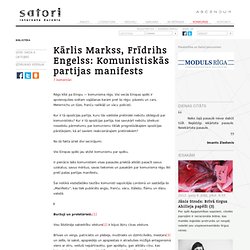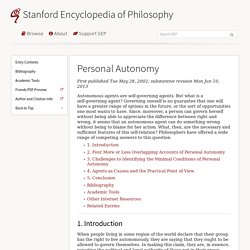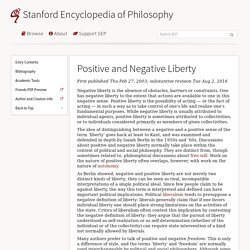

Public Lectures and Events: podcasts and videos - Public lectures and events - Channels - Video and audio - News and media. A collection of podcasts and videos from LSE's programme of public lectures and events. Find the latest 20 items on this page or browse the latest 100 | items, latest 500 | items or by year using the navigation menu on the left. To view a list of all items please see our webfeeds | . To view other video and audio content see - channels | .
On the Limits of State Power. ¼ Satori. Kārlis Markss, Frīdrihs Engelss: Komunistiskās partijas manifests. Rēgs klīst pa Eiropu ― komunisma rēgs.

Visi vecās Eiropas spēki ir apvienojušies svētam vajāšanas karam pret šo rēgu: pāvests un cars, Meternichs un Gizo, franču radikāļi un vācu policisti. Kur ir tā opozīcijas partija, kuru tās valdošie pretinieki nebūtu izklieguši par komunistisku? Kur ir tā opozīcijas partija, kas savukārt nebūtu izteikusi nosodošu pārmetumu par komunismu tiklab progresīvākajiem opozīcijas pārstāvjiem, kā arī saviem reakcionārajiem pretiniekiem?
No šā fakta izriet divi secinājumi. Visi Eiropas spēki jau atzīst komunismu par spēku. Ir pienācis laiks komunistiem visas pasaules priekšā atklāti pasacīt savus uzskatus, savus mērķus, savas tieksmes un pasakām par komunisma rēgu likt pretī pašas partijas manifestu. Šai nolūkā visdažādāko tautību komunisti sapulcējās Londonā un sastādīja šo „Manifestu”, kas tiek publicēts angļu, franču, vācu, itāliešu, flāmu un dāņu valodā. Buržuji un proletārieši.[1] Visu līdzšinējo sabiedrību vēsture[2] ir bijusi šķiru cīņas vēsture. Tas, ko es vēlos zināt. Vnesla_li_religiya_poleznii_vklad_v_tcivilizatciyu.
Diskusija: internets un brīvība. Les 5 tendances des 50 prochaines années ! « SWiTCH. 5110 - AUTONOMIE. Bienvenue chez Max Milo Editions. Nombre des pages : 284 Nos sociétés contemporaines nous laissent croire que nous sommes libres ; c’est un leurre.

Nous sommes encore ferrés dans nos chaînes, y compris en Occident. Des chaînes que nous prenons pour des ailes : nous nous croyons en démocratie, nous pensons que le travail permet de nous émanciper et nous imaginons que les nouvelles technologies nous facilitent la vie. Telle est notre « novlangue » quotidienne. Mais l’oligarchie règne, l’homme est embourbé dans la société de consommation et le libéralisme, le contrôle sécuritaire est de plus en plus prégnant, tandis que les progrès médicaux en matière de procréation nous rapprochent d’une « fabrication industrielle de l’humain ». C’est le travail qu’a entrepris Denis Collin. Denis Collin est professeur agrégé de philosophie, docteur ès lettres et sciences humaines. Action. Personal Autonomy. 1.

Introduction When people living in some region of the world declare that their group has the right to live autonomously, they are saying that they ought to be allowed to govern themselves. In making this claim, they are, in essence, rejecting the political and legal authority of those not in their group. They are insisting that whatever power these outsiders may have over them, this power is illegitimate; they, and they alone, have the authority to determine and enforce the rules and policies that govern their lives. When an individual makes a similar declaration about some sphere of her own life, she, too, is denying that anyone else has the authority to control her activity within this sphere; she is saying that any exercise of power over this activity is illegitimate unless she authorizes it herself.
Positive and Negative Liberty. 1.

Two Concepts of Liberty Imagine you are driving a car through town, and you come to a fork in the road. You turn left, but no one was forcing you to go one way or the other. Next you come to a crossroads. You turn right, but no one was preventing you from going left or straight on. This story gives us two contrasting ways of thinking of liberty. In a famous essay first published in 1958, Isaiah Berlin called these two concepts of liberty negative and positive respectively (Berlin 1969).[1] The reason for using these labels is that in the first case liberty seems to be a mere absence of something (i.e. of obstacles, barriers, constraints or interference from others), whereas in the second case it seems to require the presence of something (i.e. of control, self-mastery, self-determination or self-realization).
It is useful to think of the difference between the two concepts in terms of the difference between factors that are external and factors that are internal to the agent. 2. 3. Jefferson - Enlightenment: Social Freedom. The Diaspora Project.